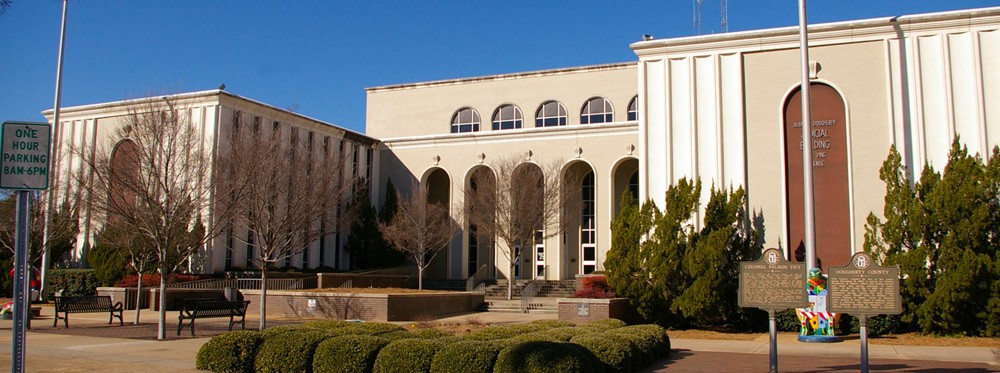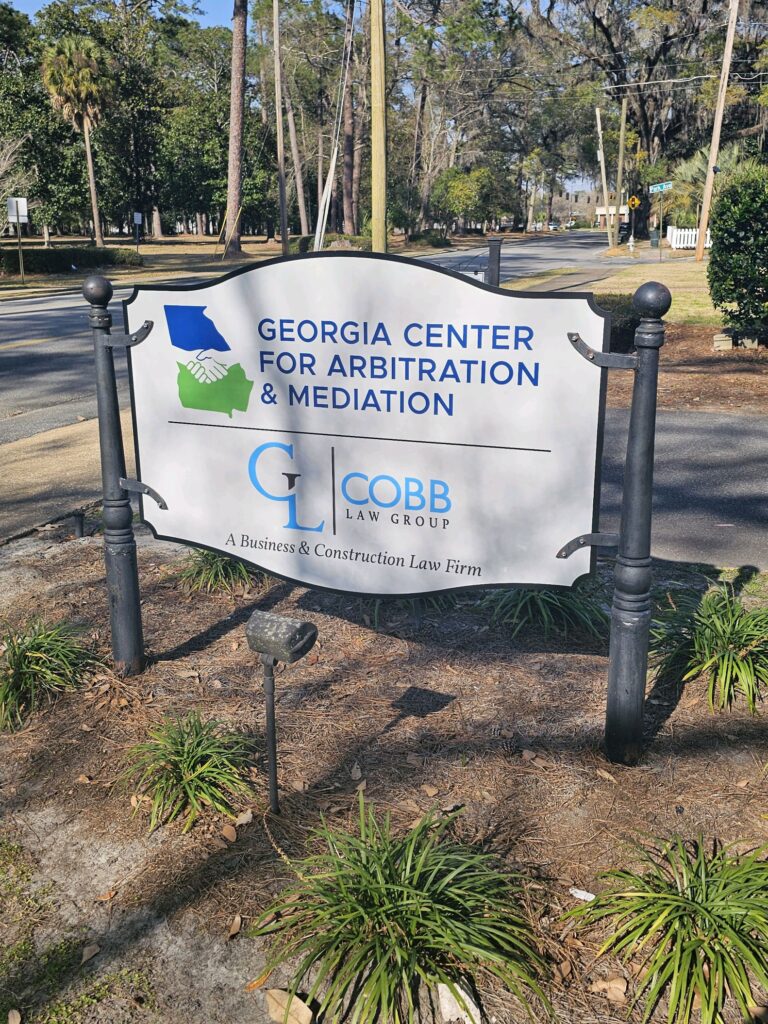
Blog
Albany, Georgia served by Arbitration & Mediation Center

 We are pleased to announce that the Georgia Center for Arbitration and Mediation serves Albany, Georgia, Dougherty County, and the entire Dougherty Judicial Circuit for those seeking experienced mediators and arbitrators. Our team of third-party neutrals are dedicated to giving the people of Albany a better way to resolve their legal disputes. We offer our services from our physical offices, we can travel to the client’s offices, and we offer on-line mediation and on-line arbitration services from our state-of-the-art conference center.
We are pleased to announce that the Georgia Center for Arbitration and Mediation serves Albany, Georgia, Dougherty County, and the entire Dougherty Judicial Circuit for those seeking experienced mediators and arbitrators. Our team of third-party neutrals are dedicated to giving the people of Albany a better way to resolve their legal disputes. We offer our services from our physical offices, we can travel to the client’s offices, and we offer on-line mediation and on-line arbitration services from our state-of-the-art conference center.
What are the benefits of Mediation in Georgia?
There are many reasons why someone looks for a mediator. Mediators can provide creative, problem-solving solutions to many legal needs more quickly and much less expensively than the traditional civil court system. In addition, mediation is a confidential process, but, more importantly, mediation solutions are agreed to by the participants – judges do not decide an outcome, no jury decides an outcome – instead the parties involved voluntarily agree to a binding solution. If consensus is not reached by all of the involved parties, then no binding decision is reached.
When Does Someone need a Mediator or Arbitrator in Albany, Georgia?
Increasingly, there are more and more reasons to seek the services of a mediator or arbitrator. The following are some of the common ways that people find themselves in mediation:
1. Court Mandated Mediation:
Most Superior Courts in Georgia require that the parties in a civil suit participate in mediation prior to going to trial. This is to help facilitate an amicable settlement, but it is also to help curb the backlog of cases facing most Georgia courts. In order to participate in court-ordered mediation, the mediator must be registered with the Georgia Office of Dispute Resolution. Most of our neutrals have met this requirement in order to help you with this process as easily as possible.
2. Contracts Require ADR:
Many contracts contain a dispute resolution provision which requires that the parties within the contract must mediate or arbitrate any disputes which arise. Due to the lower costs associated with Alternative Dispute Resolution (ADR) and the efficiency and speed at which matters can be addressed, there are mandatory mediation provisions in many construction contracts, for example. Other contracts such as shareholder disputes, employment issues, banking and securities contracts, and transactional law use mediation and arbitration as the parties sole recourse because of the strict confidential nature of mediation and arbitration proceedings.
3. Subject Matter Experts Matter:
When a party is involved in a lawsuit, they have almost no say in who the judge the will be. Perhaps a former family law attorney is now the judge to hear your complex contract matter. In Mediation and Arbitration proceedings the parties agree who will be handling the matter. We offer subject-area specialists to insure that your neutral understands the law involved in your dispute. No one has to spend the time (that is money) “teaching” the judge about what the law says. In fact, several of our third-party neutrals helped write the law! For example, Mike Ledyard was on the committee which wrote the laws (and the amendments) to create Delaware’s unique Statutory Trust; this gives him a significant advantage over other mediators or arbitrators working with this unusual business entity. Similarly, Mark Cobb served on a committee with two other attorneys to write the 2020 amendments to Georgia lien laws. This type of knowledge and understand is invaluable–something few judges can claim.
4. People Want Justice More Quickly and Less Expensively:
After discussing the true costs of bringing a lawsuit or responding to a lawsuits with an attorney, many people find that the hard costs (lawyer fees, for example) and the soft costs (the delays and continuances in a civil court) do not justify the potential gains of bringing the suit. If all of the parties involved agree, then they can submit their claim to arbitration or mediation for a quicker, much less expensive solution.
5. Small Claims Arbitration:
“Small Claims” courts across the county have very low thresholds including Georgia which is limited to claims less than $15,000.00. Many claims are higher, but they do not justify the cost of hiring an attorney who may charge more than the potential recovery in a traditional court setting. Our Small Claims Arbitration and Mediation has a much more realistic threshold, and it’s a flat-fee so the parties know exactly how much it will cost them to pursue their claims.
What is the Different Between a Mediator and an Arbitrator in Albany, Georgia?
Much can be written to describe the differences between a mediation and an arbitration proceeding, but generally, a mediator is a neutral third-party who works with the participants in a dispute to find a creative solution which is agreeable to all parties. An arbitrator serves more like a private judge; they should be selected based upon their experience, their knowledge, and their ability to help the parties
How Do I start the Process with a Mediator or and Arbitrator in Albany, Georgia?
If your case is court-mandated, and you wish to use our services, all that you have to do is contract us. We will do the rest!
If your mediation or arbitration is required by contract, then the parties involved must agree to use our mediation services. If the parties agree, then contact us here. We will do the rest!
If you are not required to mediate or arbitrate through a court order or a contract provision, but you wish to avail yourself of the efficiency and lower costs associated with ADR, then, first, all of the parties must agree (i) to mediate and/or arbitrate the issues and (ii) to use the services of the Georgia Center for Arbitration and Mediation. After that, contact us to start the process. We will take care of the rest.





